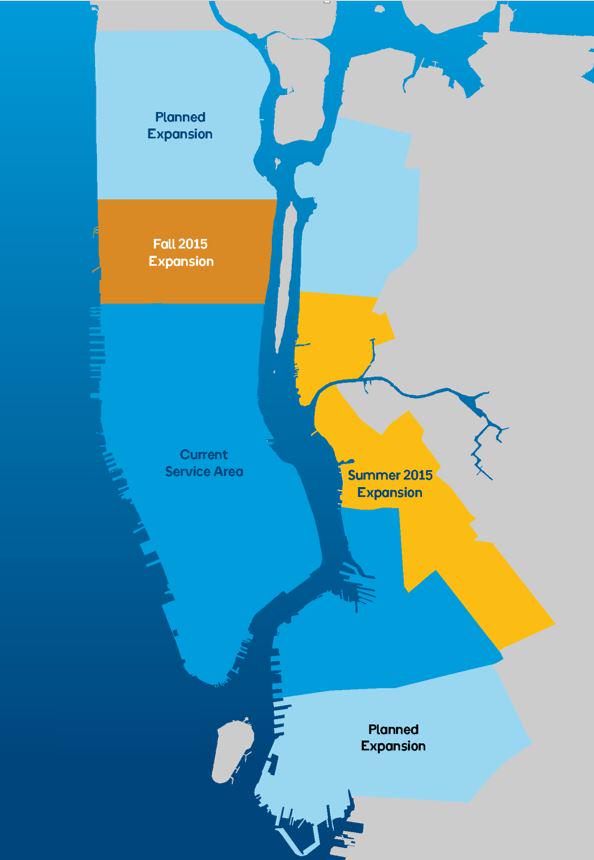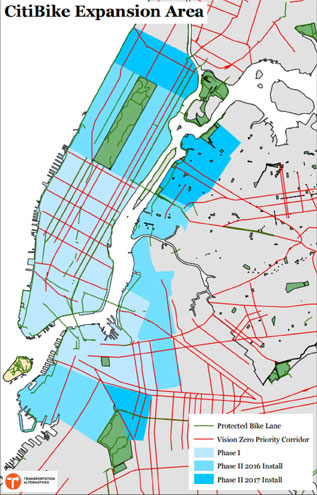City Council members want bike-share to expand into their neighborhoods in a five-borough network. Officials at DOT and bike-share operator Motivate share that vision, but they said at a hearing today that it won't come cheap.

After a rough start, Citi Bike's recent success has prompted a growing number of elected officials to call for expanding the bike-share network to more neighborhoods and to lower-income New Yorkers.
The current phase of expansion is set to wrap up next year, extending the service area to Harlem, Astoria, and Crown Heights. Beyond 2017, the growth of the system is uncertain.
But transportation committee chair Ydanis Rodriguez wants bike-share stations in every community board in the city by 2020. "It is imperative that we turn Citi Bike into a public good, a resource for our lowest-income communities, an opportunity for growth and human capital development," he said.
That's no small task: The capital cost of adding one bike to the system is $6,000 (including the dock and other hardware), and Motivate says installing stations in every community board in the city would require 70,000 to 80,000 bikes. So blanketing the city with bike-share would cost more than $400 million.
So far, Citi Bike has launched and expanded using sponsorship revenue, member fees, and other private sources -- not public funds. That will probably have to change to bring bike-share beyond the 2017 expansion zone. Both DOT Commissioner Polly Trottenberg and Motivate CEO Jay Walder said today that public funding would likely be necessary to make citywide bike-share a reality.
Trottenberg also warned of "challenges and limitations" associated with geographic expansion. After recent expansions uptown and into Brooklyn, for example, Trottenberg said Motivate has struggled with distributing bikes, especially ensuring that bikes are available on the periphery of the system. A heavy-handed city role, could also stifle Motivate's "entrepreneurial and creative approach," she said.

Rodriguez and other council members stood firm in insisting that a five-borough bike-share system should be a priority, regardless of whether that requires city funding.
"You should understand what we want is that robust, equitable, city-wide system," Council Member Brad Lander told Trottenberg. "If that should take public dollars, you should know that this council supports that."
In her testimony, Trottenberg also pointed to Citi Bike’s safety record and the correlation between safer streets and more people riding bikes. “As the number of riders within the service area has increased, we have found that the streets are safer for cyclists,” she told the committee.
DOT has also take steps to expand the protected bike lane network along with bike-share. Advocates want the city to ensure that safety improvements continue to accompany bike-share expansions.
In the most recent expansion areas, however, there are few protected bike lanes and many Vision Zero priority corridors -- the streets with the highest risk of traffic injuries -- noted Transportation Alternatives Executive Director Paul Steely White. “I think there’s a bit of complacency about the safety record that Citi Bike has enjoyed,” he told council members.





